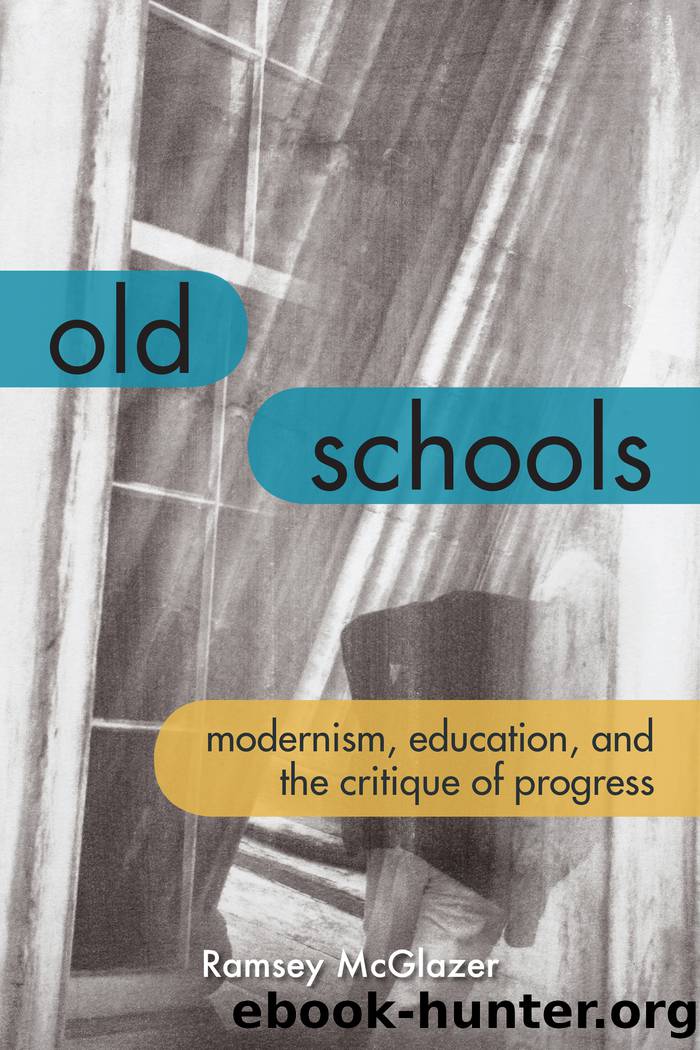Old Schools by McGlazer Ramsey;

Author:McGlazer, Ramsey;
Language: eng
Format: epub
Publisher: Fordham University Press
Published: 2020-08-15T00:00:00+00:00
Figure 4. The Courtyard in Salò (1975). Shown through backward binoculars.
But there is, as I have indicated, another account according to which he has not only been forgiven many times over, but also recast as a prophet of current political or biopolitical realities. This second story is hagiographic, and it has been especially widely disseminated during the last two decades. Those who tell this story counter the late Pasoliniâs detractors by noting that, if Salò is hard to see, so, too, is our world of bare life and resurgent sovereignty, marked by unabashed exploitation and the end of the citizen-subjectâs autonomy.7 Indeed, Salòâs defenders have argued cogently and often compellingly for the filmâs lasting relevance. They have also shown that Pasoliniâs late work speaks to a range of urgent contemporary debates. Seldom, though, have these critics stayed with Salòâs images or tarried with the uncomfortable question of complicity. There is instead a rush to bypass, an effort to look through rather than at the film in these accounts, which frequently refer not to the filmâs images but to what they signify.8 And they have been seen to signify everything from âthe eclipse of desireâ in the present to âcurrent methods of biopower,â where the operative word in that last phrase is âcurrent.â9 Salò, by this account, looks forward-looking, like our contemporary; made just over forty years ago, the film uncannily anticipates our politics and our predicaments today.
To be sure, critics who make arguments like these follow the lead of the allegorizing cover story that the director himself provided, as when he said that sex in the film was merely a âmetaphor for power.â10 Indeed, Pasolini claimed repeatedly that he had sought, with Salò, to expose contemporary capitalist power at its purest, at its most âanarchic.â11 But if we take Pasolini at his word hereâor rather if, forgetting that a metaphor asks to be read, we take him to mean that the filmâs images are so many veils to strip away or to see throughâthen it becomes difficult to account for the filmâs painstaking construction and even more for its insistent backwardness: its fascination with Fascism and its fixation on Sade; its staging of ritual tableaux and its retrograde interest in âsodomy.â This interest contrasts starkly with the liberatedâand still celebratedâsexual exuberance of the directorâs previous three films, the films in his Trilogy of Life. Some of the films that he made before the Trilogy, ranging from La rabbia (1963) to Teorema (1968), had in fact shown postwar capitalist power recognizablyâthat is, in images in which spectators might have recognized themselves. Salò is instead set in a past that, by most accounts, was never to be repeated, that was supposed to have been left behind. Surely it was therefore easy, from the first, for Salòâs spectators to regard the film as if it were not about them at all. Salò is, after all, most obviously about Fascist and Sadean powerâthat is, about forms of power whose apparent remoteness from the present
Download
This site does not store any files on its server. We only index and link to content provided by other sites. Please contact the content providers to delete copyright contents if any and email us, we'll remove relevant links or contents immediately.
The Power of Myth by Joseph Campbell & Bill Moyers(936)
Half Moon Bay by Jonathan Kellerman & Jesse Kellerman(920)
A Social History of the Media by Peter Burke & Peter Burke(886)
Inseparable by Emma Donoghue(854)
The Nets of Modernism: Henry James, Virginia Woolf, James Joyce, and Sigmund Freud by Maud Ellmann(772)
The Spike by Mark Humphries;(730)
A Theory of Narrative Drawing by Simon Grennan(712)
The Complete Correspondence 1928-1940 by Theodor W. Adorno & Walter Benjamin(711)
Ideology by Eagleton Terry;(665)
Bodies from the Library 3 by Tony Medawar(656)
World Philology by(649)
Culture by Terry Eagleton(648)
Farnsworth's Classical English Rhetoric by Ward Farnsworth(647)
Adam Smith by Jonathan Conlin(618)
A Reader’s Companion to J. D. Salinger’s The Catcher in the Rye by Peter Beidler(616)
Game of Thrones and Philosophy by William Irwin(604)
High Albania by M. Edith Durham(598)
Comic Genius: Portraits of Funny People by(588)
Monkey King by Wu Cheng'en(581)
